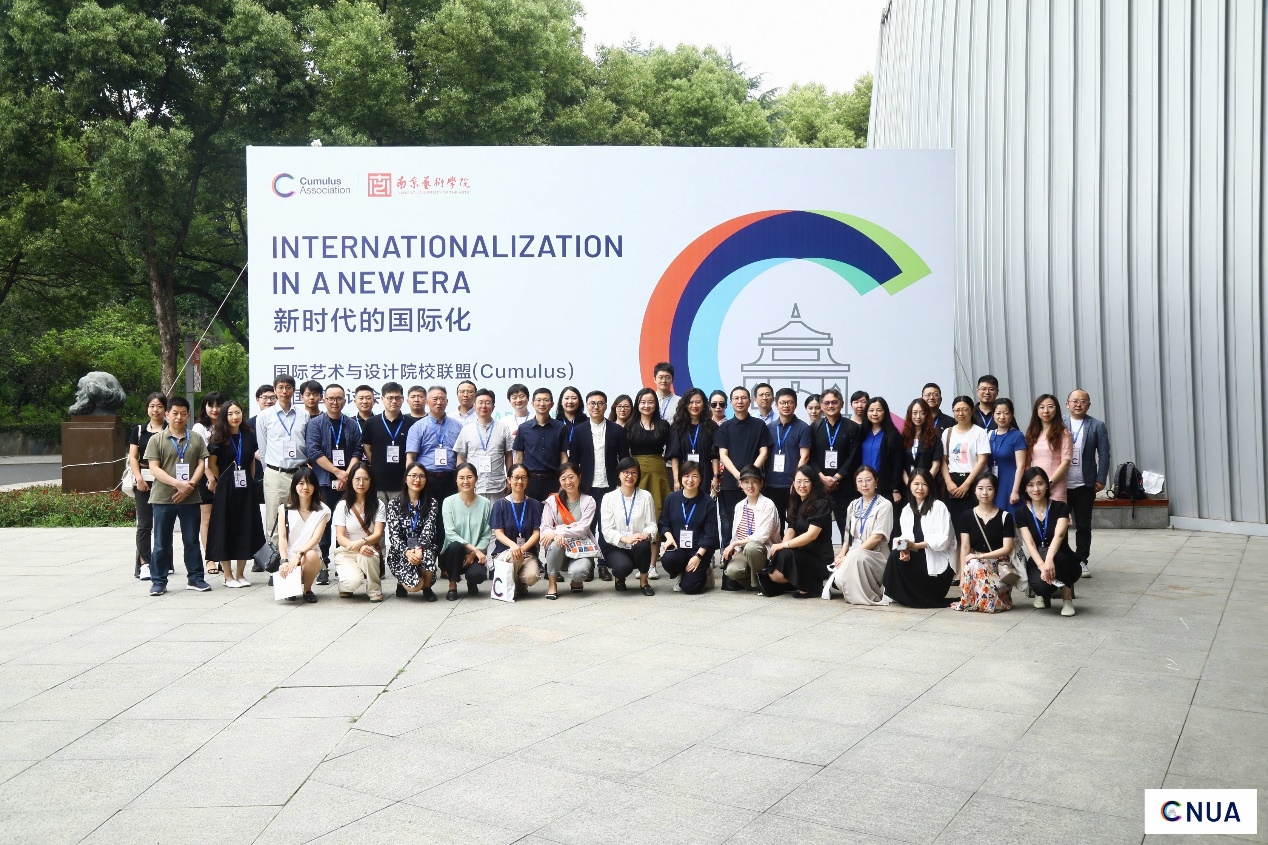
The 2023 Cumulus Reginal Seminar China hosted by Nanjing University of the Arts opened in Lecture Hall of Fine Arts Museum of NUA at 8:40 am, June 21, 2023. The conference was divided into two parts: keynote speeches and roundtable discussions, focusing on the internationalization of design education in the new era, new background, and new perspectives. Four invited guests from Tongji University, Jiangnan University, Tsinghua University, and Nanjing University of the Arts delivered keynote speeches, exploring the internationalization of design schools in the new era from the perspectives of institutions, culture, and disciplines. In the roundtable discussion, 21 experts and scholars from Cumulus member institutions in China exchanged and discussed different topics at separate roundtable sessions.
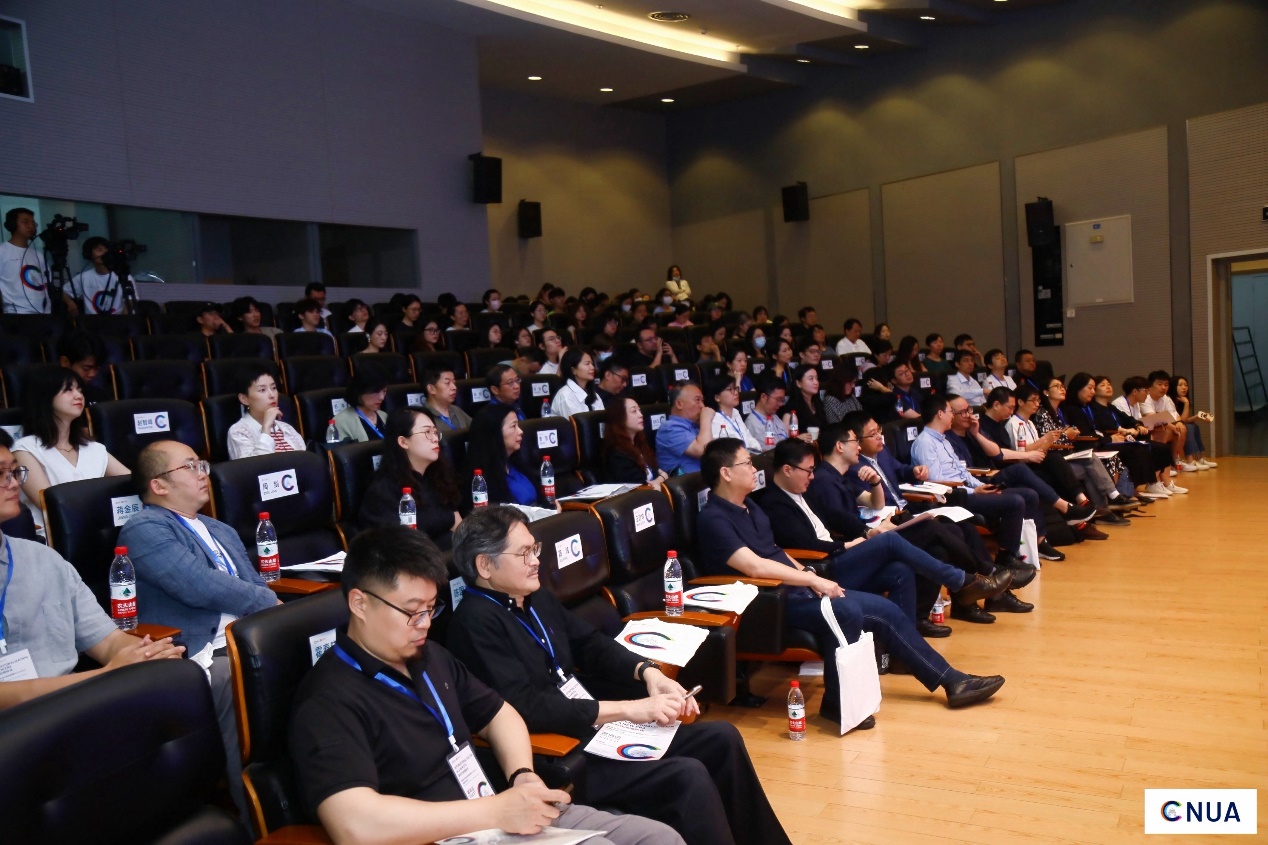
The participants of this Cumulus China Regional Seminar are from the following universities and institutions: Sapienza University of Rome, Tsinghua University, Tongji University, Jiangnan University, University of Science and Technology of China, Hunan University, Sichuan University, Shanghai Jiao Tong University, Guangdong University of Technology, Soochow University, Donghua University, East China University of Science and Technology, Hunan Normal University, Beijing University of Technology, Nanjing University of Finance & Economics, City University of Macau, The Glasgow School of Art, Central Academy of Fine Arts, Nanjing University of the Arts, Sichuan Fine Arts Institute, Shandong University of Art and Design, Fuzhou University of International Studies and Trade, Nanjing Vocational College of Information Technology(In no particular order of ranking).
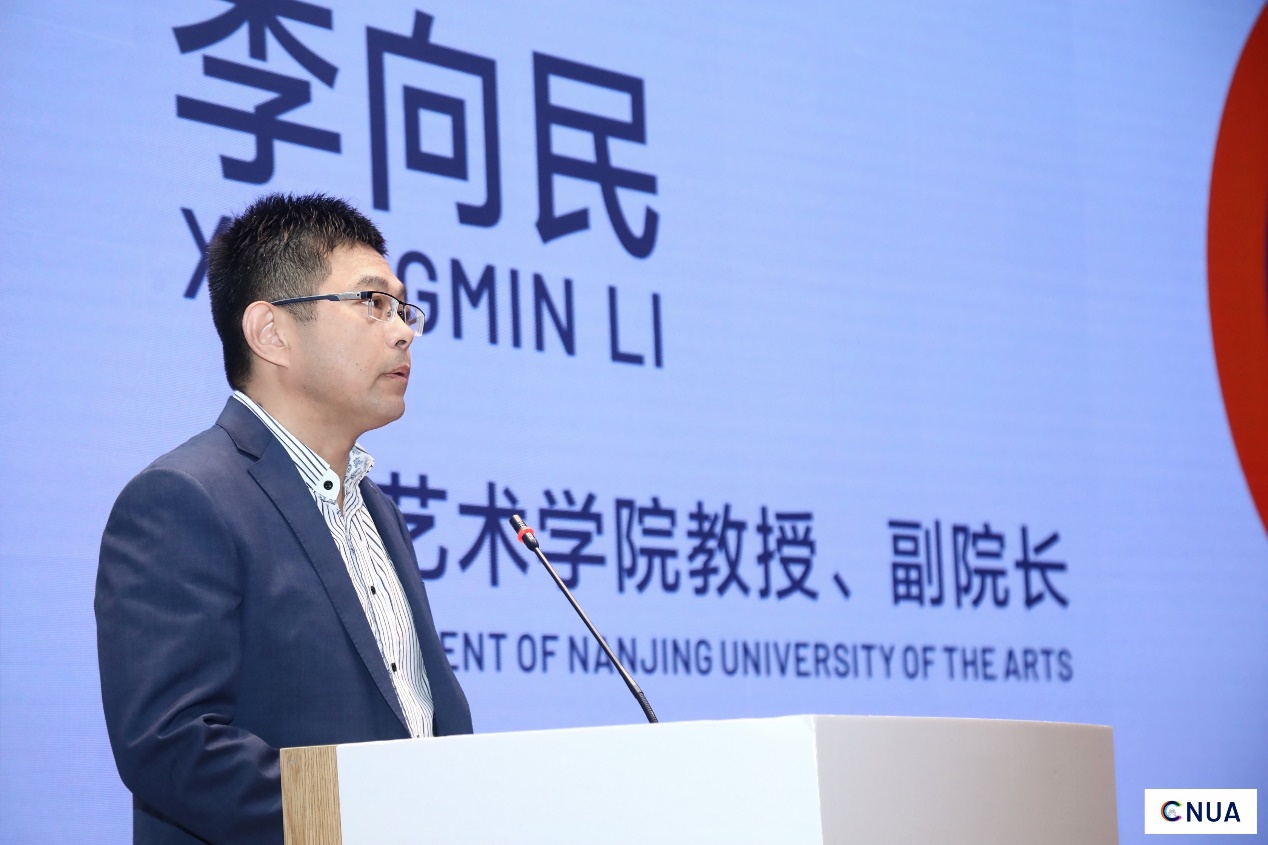
The opening ceremony was hosted by Xiangmin Li, Vice President of Nanjing University of the Arts. Professor Linghao Zhang, President of Nanjing University of the Arts and Professor and Lorenzo Imbesi, President of Cumulus, Sapienza University of Rome made opening speeches.

Professor Linghao Zhang first expressed the significance of Cumulus, and expressed the hope that through this Cumulus China Regional Conference would strengthen the connections and collaboration among art and design schools in Chinese region. In addition, the seminar signifies the modernization and localization of Cumulus, aiming to address global challenges and issues while offering Chinese resources and perspectives to design education worldwide. Therefore, we must shoulder the responsibility of the era, work together, and contribute to the development of Cumulus in China.
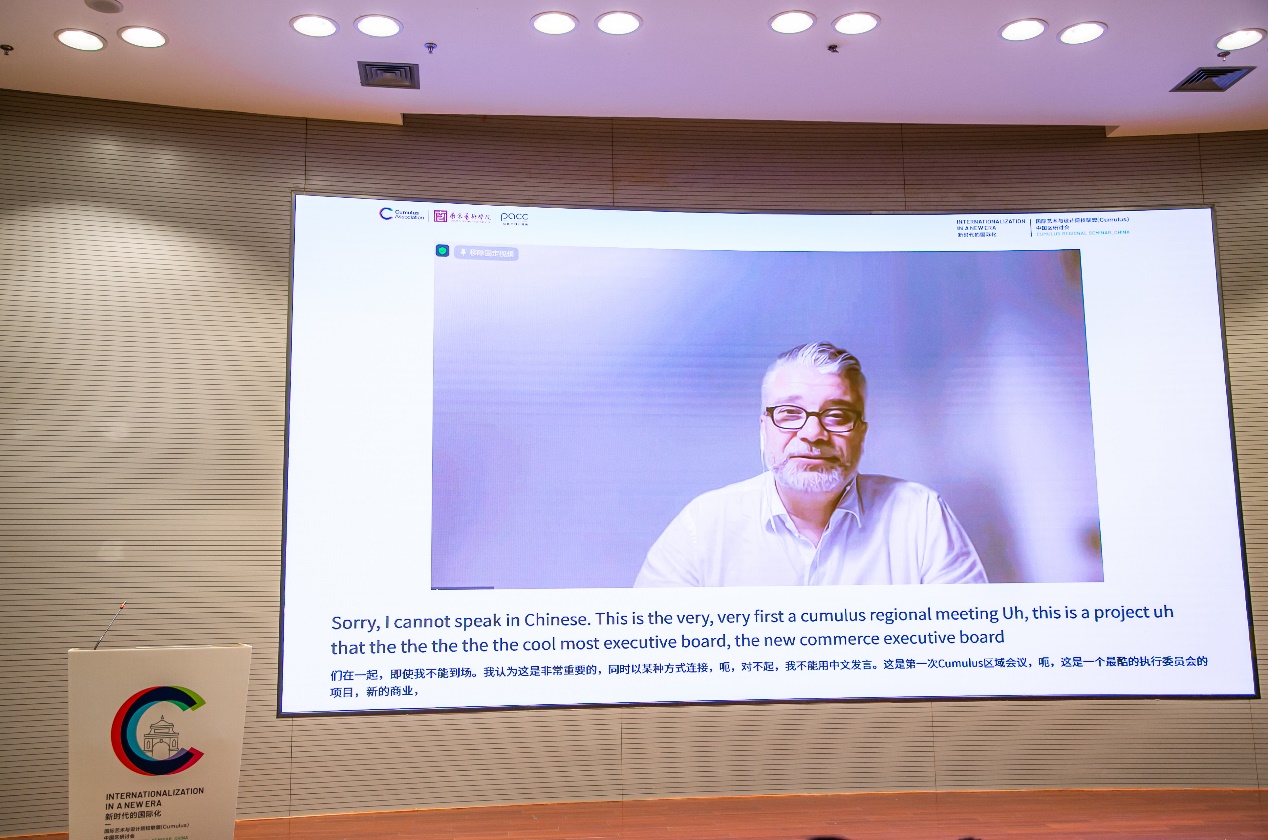
Professor Lorenzo Imbesi stated that Cumulus has now become a wide-ranging cooperative organization with a total of 368 alliance members as of today. And these members have developed and gradually grown in different regions. For this reason, it is necessary to establish closer connections and exchanges among each other. This seminar in China is the first regional conference of Cumulus, which holds significant strategic importance.
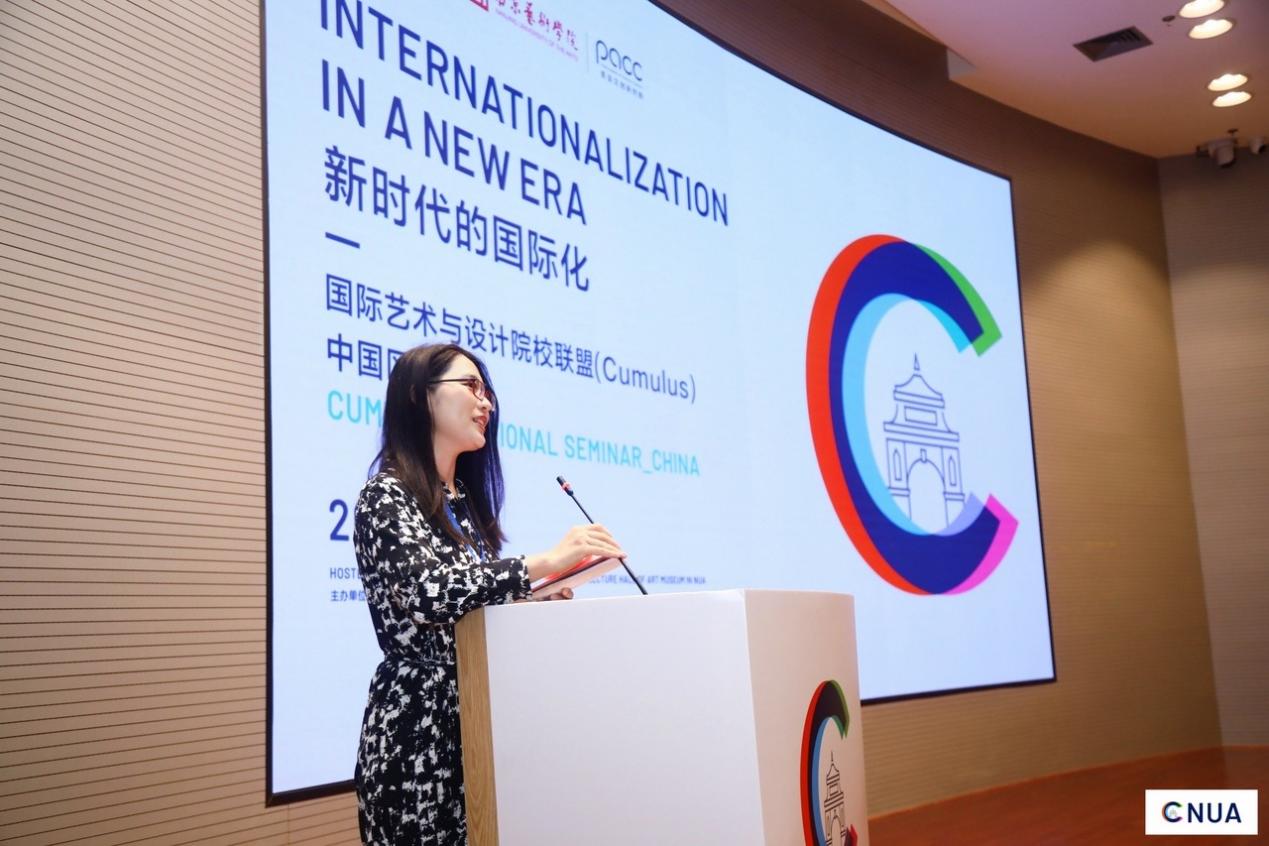
The first half seminar was hosted by Xiangjie Chen, former Vice Chair of Cumulus X-files Working Group, School of Design, Jiangnan University.

Being Distinctive, Inclusive, and Complementary: design education and international cooperation in Tongji University
Professor Yongqi Lou, Former Vice President of Cumulus,Vice president of Tongji University
Professor Lou took Tongji Design Education as an example and explained how to highlight the characteristics of the institution through international cooperation.
Tongji University College of Design and Innovation positions its own value as being distinctive in design education, and international cooperation and exchanges are indispensable elements, which provides good opportunities and more possibilities for active innovation. Inclusiveness is not only the historical inheritance of Tongji’s academic tradition, but also a comprehensive reflection of the way of thinking and operating logic of the Tongji University College of Design and Innovation. Teachers and students from different academic backgrounds, different disciplines and even different cultural regions around the world engage together in order to form a dojo of "learning and creating for the meaning of life and the future of the world". The concept of "knowledge and action supporting each other" points to the interdependent and mutually reinforcing relationship between knowledge and practice, learning and creation in design education. By introducing several relevant cases, Professor Lou Yongqi believes that only by connecting academic issues with the real world can real ideas be formed.
Finally, Professor Lou put forward his thoughts and prospects for internationalization in the new era: In the process of shaping cultural and technical citizens, internationalization is not only a means of building a first-class university, but also an important connotation of a first-class university, and international cooperation among universities is an important way to respond to the unprecedented challenges in today's world.
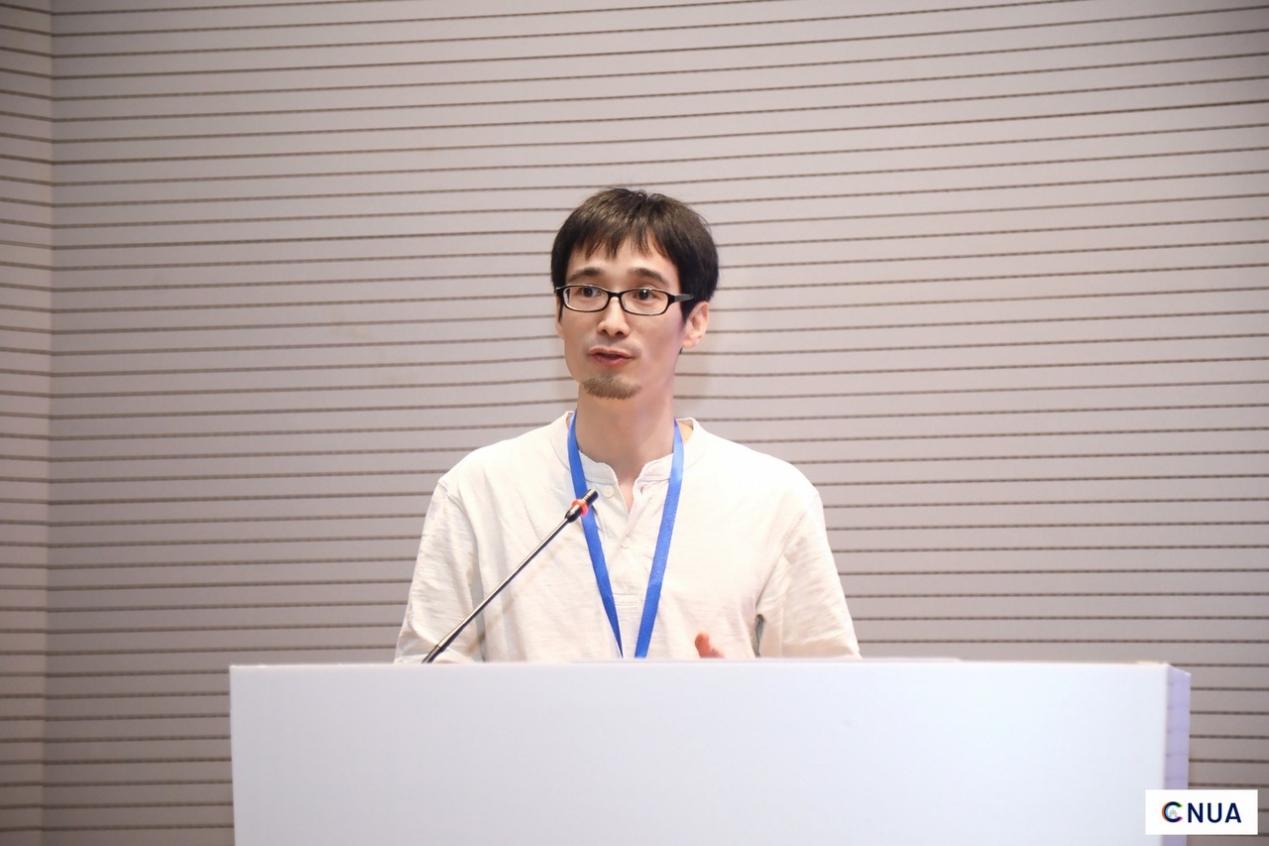
Cumulus enabling bidirectional interaction between China and Aboard
Associate Professor Miaosen Gong, CEB member, Cumulus; Jiangnan University
Based on the development history and characteristics of Cumulus, Miaosen Gong discussed the ways and possibilities of Cumulus enabling bidirectional interaction between China and aboard.
The development of internationalization of design education in China can be divided into three stages and three different modes. The first stage was before 2010 with the strategy of "going out and inviting in" basically implemented, and the participants were mainly teachers, aiming to learn advanced western design ideas and teaching methods. The second stage, from 2010 to 2020, focused on local capacity building and reciprocal exchange mechanisms. During this period, domestic design schools actively joined the Cumulus, developed bilingual courses, and further developed peer-to-peer cooperation. The third stage started from 2020. The current society is facing a more severe global crisis, and new culture, theory and solution are needed to build the future of human destiny. The excellent traditional Chinese culture could be the key to the future sustainable society. At this juncture, we should take the initiative to promote bilateral and proactive communication., with active engagement in the management of international organizations and promotion of the Chinese excellent design culture.
Miaosen Gong concluded that regardless of the mode of internationalization, through the Cumulus, design schools can play an active role in all stages. He called on the domestic Cumulus members to make better use of this platform to achieve bidirectional interaction in design education between China and abroad.
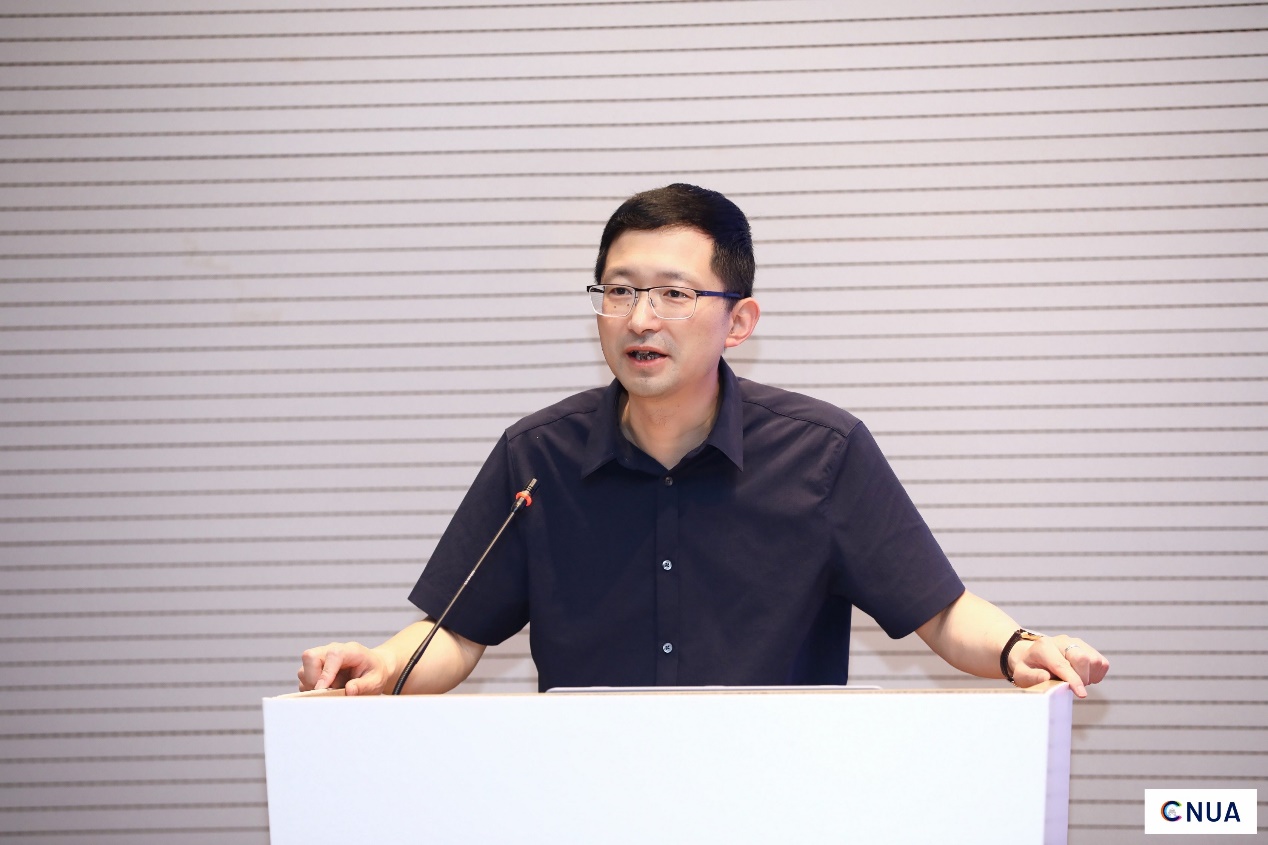
Cumulus:International Integration and Sharing of Chinese Design Education
Professor Linghao Zhang, President of Nanjing University of the Arts
Linghao Zhang explored the understanding and development of internationalization from the perspective of design education. Taking Nanjing University of the Arts as an example, international design communication aims to cultivate artistic and innovative talents with the ability to communicate with the world, and to tell Chinese stories well through international languages and resources. The focus is on internationalized teaching collaborations, primarily in the form of workshops, to promote the exploration of common issues facing humanity. In addition, Nanjing University of the Arts continues to strengthen innovation on cultural inheritance, using disciplinary advantages to promote the global sharing and expression of Chinese culture.
As an academic organization for the training of educational talents, Cumulus provides a reference for us to design international academic activities. Cumulus is a comprehensive platform for international talent training and resource sharing. Its main functions are showcasing, exchanging, sharing, and connecting in the field of education, where different modes of thinking freely converge and explore. Cumulus also features connections of the city resources and surrounding institutions, thereby building academic and resource networks.
Professor Zhang proposed that the global dissemination of the Chinese discourse system should be promoted in the bidirectional interactive communication, and it is essential to form Chinese academic achievements and thoughts base on Chinese practice and world practice in this process. As design educators, we need to strengthen design research on China's practical problems and common challenges around the world, to enhance joint project research, to focus the quantity and quality of international exchanges, and to emphasize the international expression and dissemination of Chinese culture.
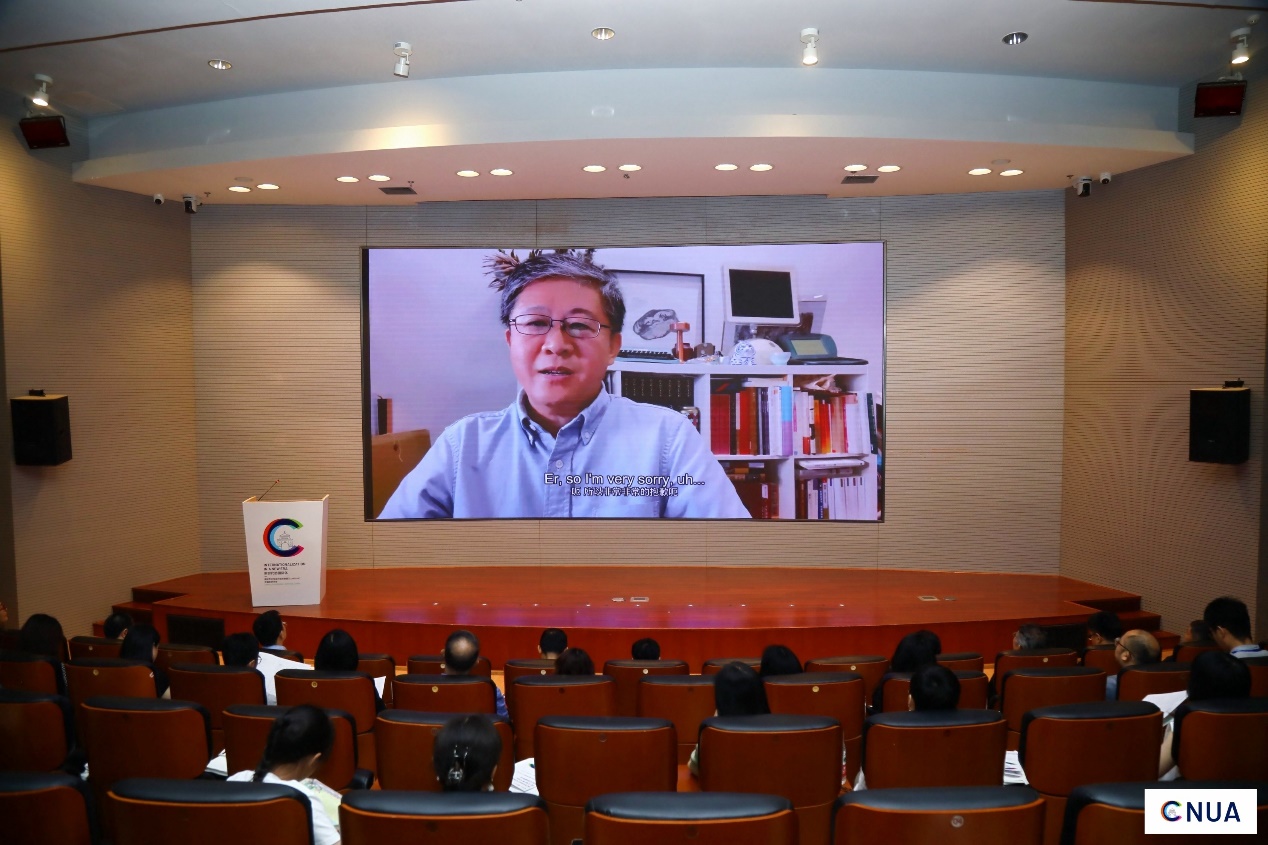
Professor Sai Ma, Dean of Academy of Arts & Design, Tsinghua University
Professor Ma introduced the international exchange of the Academy of Arts & Design, Tsinghua University. In terms of international design education, the Academy of Fine Arts has established collaborative projects with Politecnico di Milano, exchanging students and facilitating mutual learning and communication.The Central Academy of Arts and Crafts, with its profound tradition and specialties in arts and crafts and ceramics, had close interactions with Japan and South Korea during a certain period. After the integration of the Central Academy of Arts and Crafts into Tsinghua University, the exchange with European and American countries has been further expanded. Nowadays, the Academy of Fine Arts at Tsinghua University still maintains the enthusiasm for internationalization, and hopes that these practices from design exchange can be related to historical context and brand effects.
Professor Ma also pointed out that Academy of Arts & Design, Tsinghua University hopes to continue to expand the methods and contents of design educational internationalization at the level of national strategy, so as to comprehend design problems from a broader perspective and make substantial progress in design practice.
Roundtable discussion 1 was hosted by Professor Yi Xiong, Deputy Dean of School of Design, NUA. The topic was "International Development Strategy of Design Discipline". The participants discussed why the Chinese design disciplineshould be internationalized, and explained the meaning, approach and value of the internationalization of Chinese design from their own perspectives.
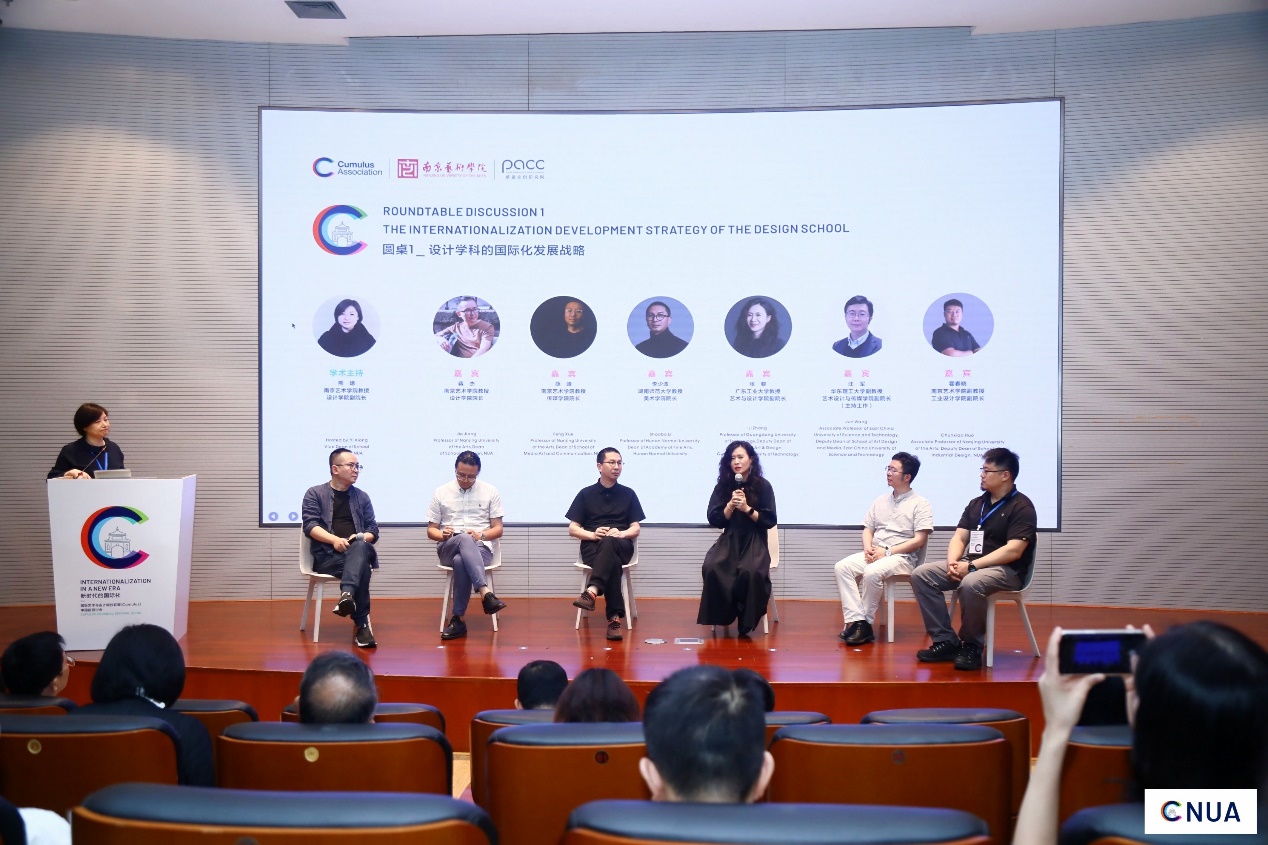
Jie Jiang, Professor of Nanjing University of the Arts, Dean of School of Design, NUA
Chunxiao Huo, Associate Professor of Nanjing University of the Arts, Deputy Dean of School of Industrial Design, NUA
Feng Xue, Professor of Nanjing University of the Arts, Dean of School of Media Art and Communication, NUA
Shaobo Li, Professor of Hunan Normal University, Dean of Academy of Fine Arts, Hunan Normal University
Li Zhang, Professor of Guangdong University of Technology, Deputy Dean of School of Art & Design, Guangdong University of Technology
Jun Wang, Associate Professor of East China University of Science and Technology, Deputy Dean of School of Art Design and Media, East China University of Science and Technology
Roundtable discussion 2 was hosted by Professor Jiajia Chen, Deputy dean of School of Industrial Design, NUA. In combination with the international exchange programs of their universities, the speakers shared the rich experience of international cooperation in running schools, and reflected on some problems in the process of international design education.
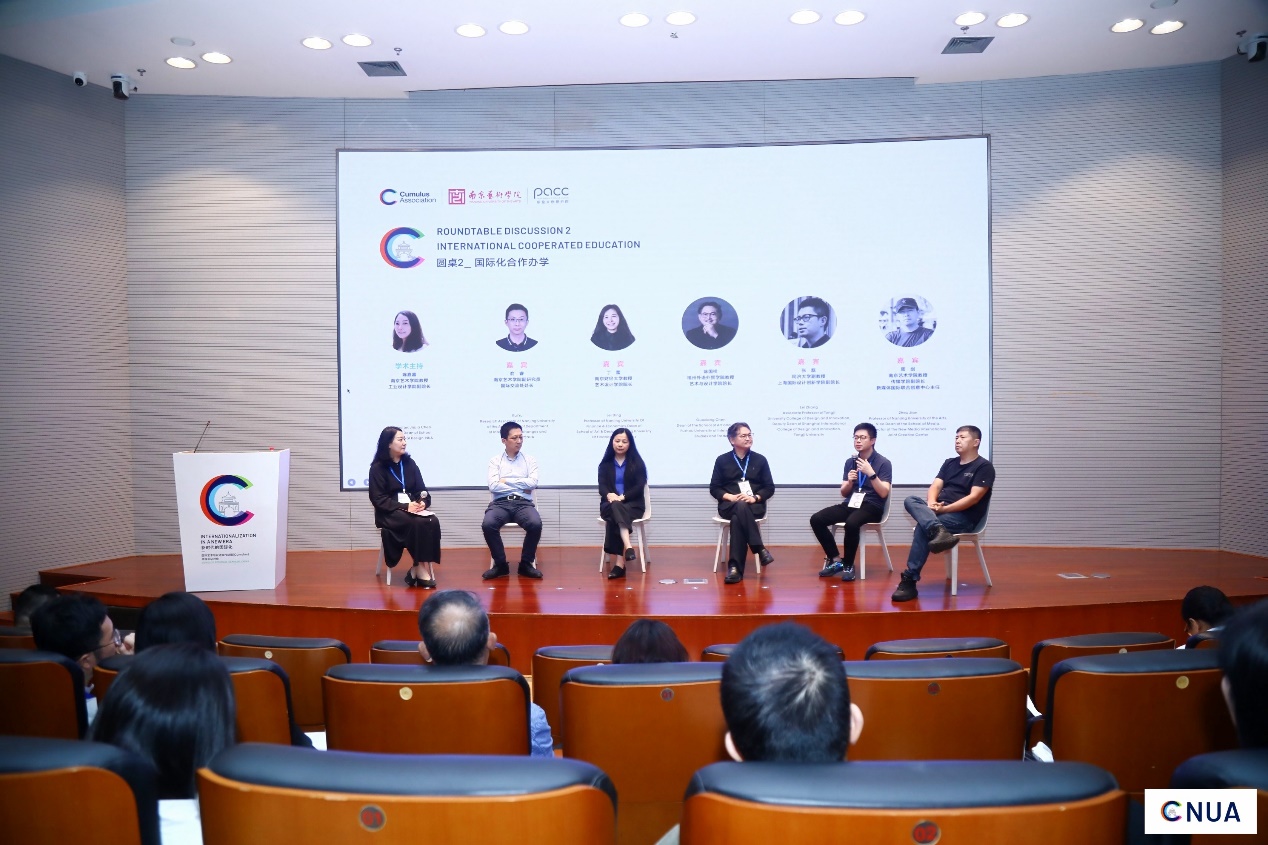
Rui Yu,Research Associate of Nanjing University of the Arts,Directorof Department of International Exchanges and Cooperation, NUA
Lei Ding, Professor of Nanjing University Of Finance & Economics,Dean of School of Art & Design, Nanjing University Of Finance & Economics
Guoxiang Chen, Dean of The School of Art and Design, Fuzhou University of International Studies and Trade
Lei Zhang, Associate Professor of Tongji University College of Design and Innovation,Deputy Dean of Shanghai International College of Design and Innovation, Tongji University
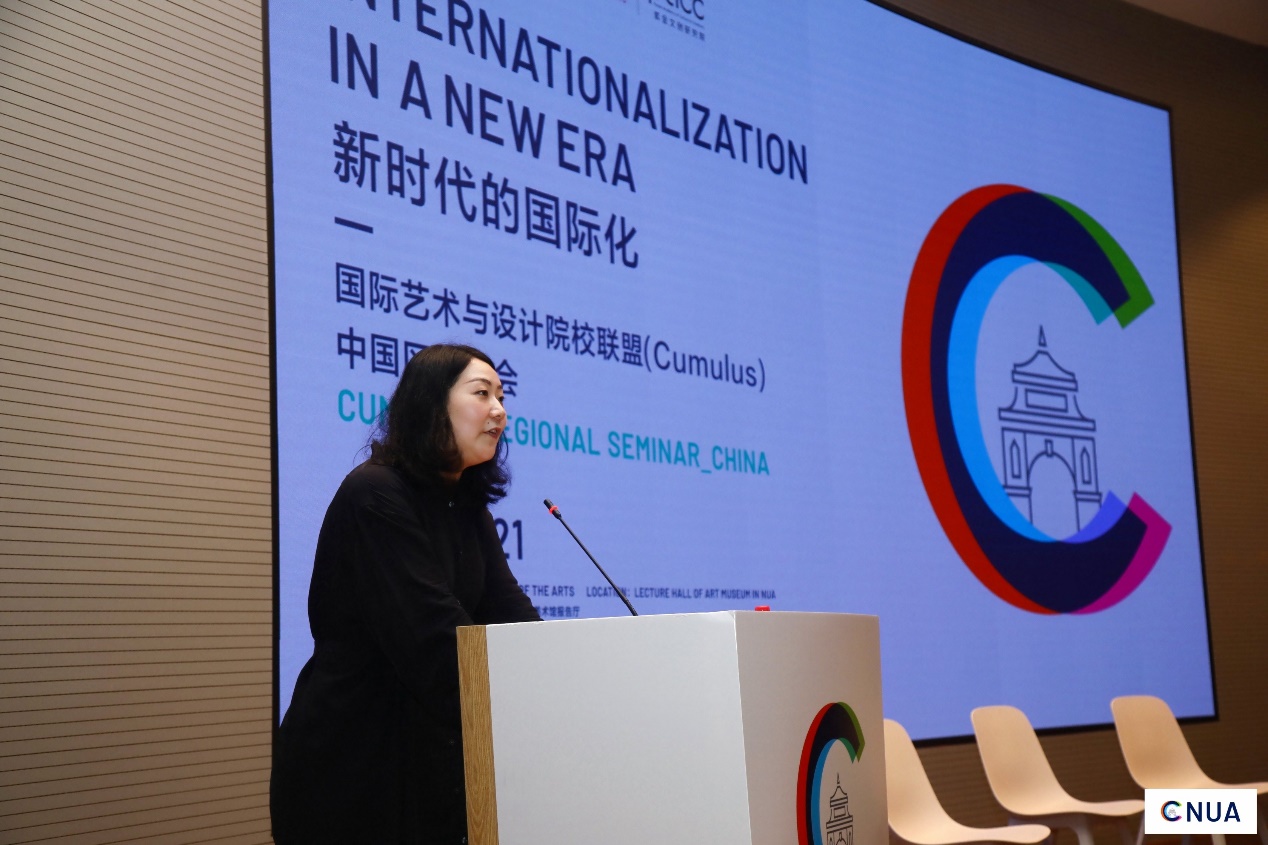
The second half seminar was hosted by Professor Jiajia Chen, Deputy Dean of School of Industrial Design, NUA.
Roundtable discussion 3 was hosted by Quanquan Zhao, Associate professor of School of Design, NUA. The topic was international relations and student exchange. The guests not only shared their experience in international courses and programs, but also put forward ideas and suggestions for future internalization forms.
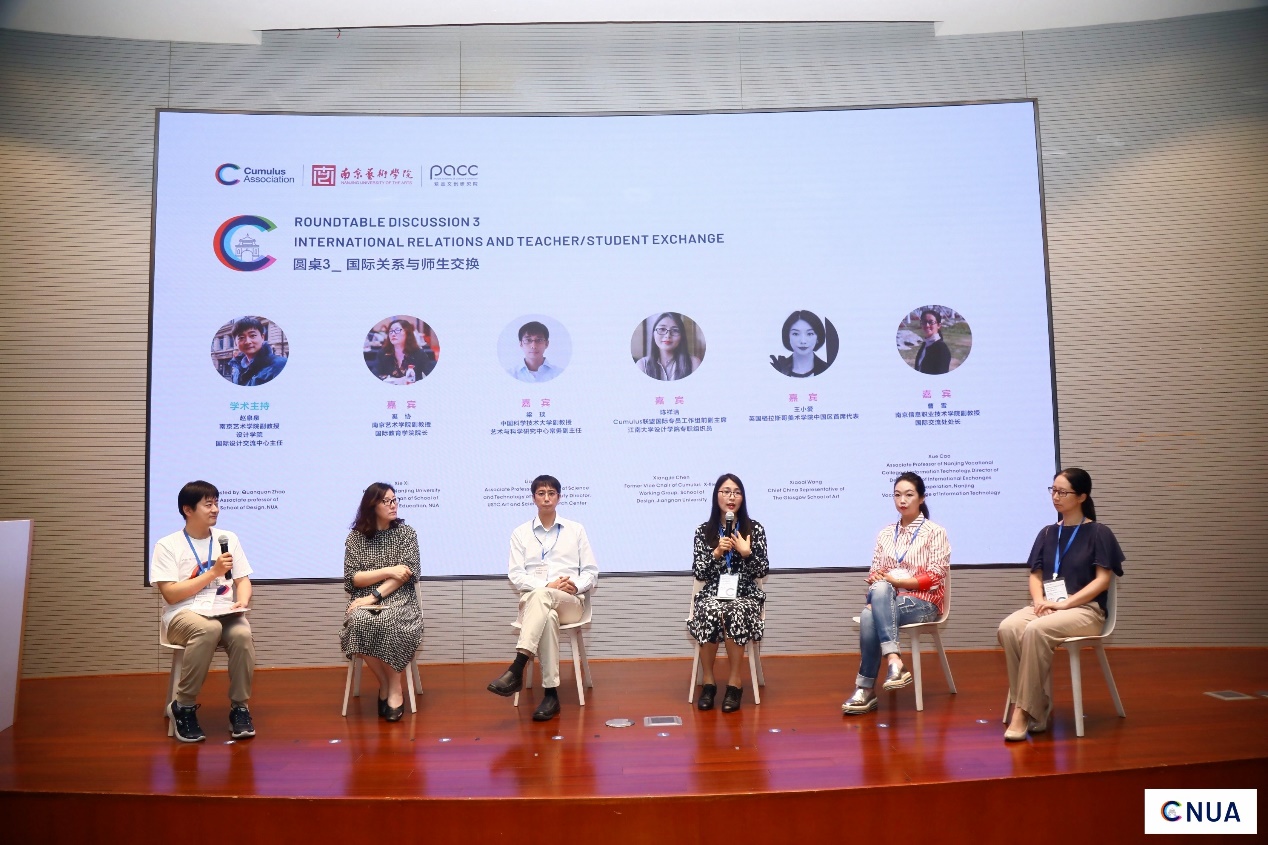
Xie Xi, Professor of Nanjing University of the Arts, Dean of School of International Education, NUA
Yan Liang, Associate Professor, University of Science and Technology of China, Deputy Director, USTC Art and Science Research Center
Xiaoai Wang, Chief China Representative of The Glasgow School of Art
Xue Cao, Associate Professor of Nanjing Vocational College of Information Technology, Director of Department of International Exchanges and Cooperation, Nanjing Vocational College of Information Technology
Xiangjie Chen, Former Vice Chair of Cumulus X-files Working Group, School of Design, Jiangnan University
Roundtable discussion 4 was hosted by Professor Yang Zhang, Deputy Dean of School of Industrial Design(Interim), NUA. In combination with their own understanding of Chinese culture and Chinese design, the guests who participated in the discussion exchanged ideas on the opportunities, ways and contents of the global export of Chinese design culture.
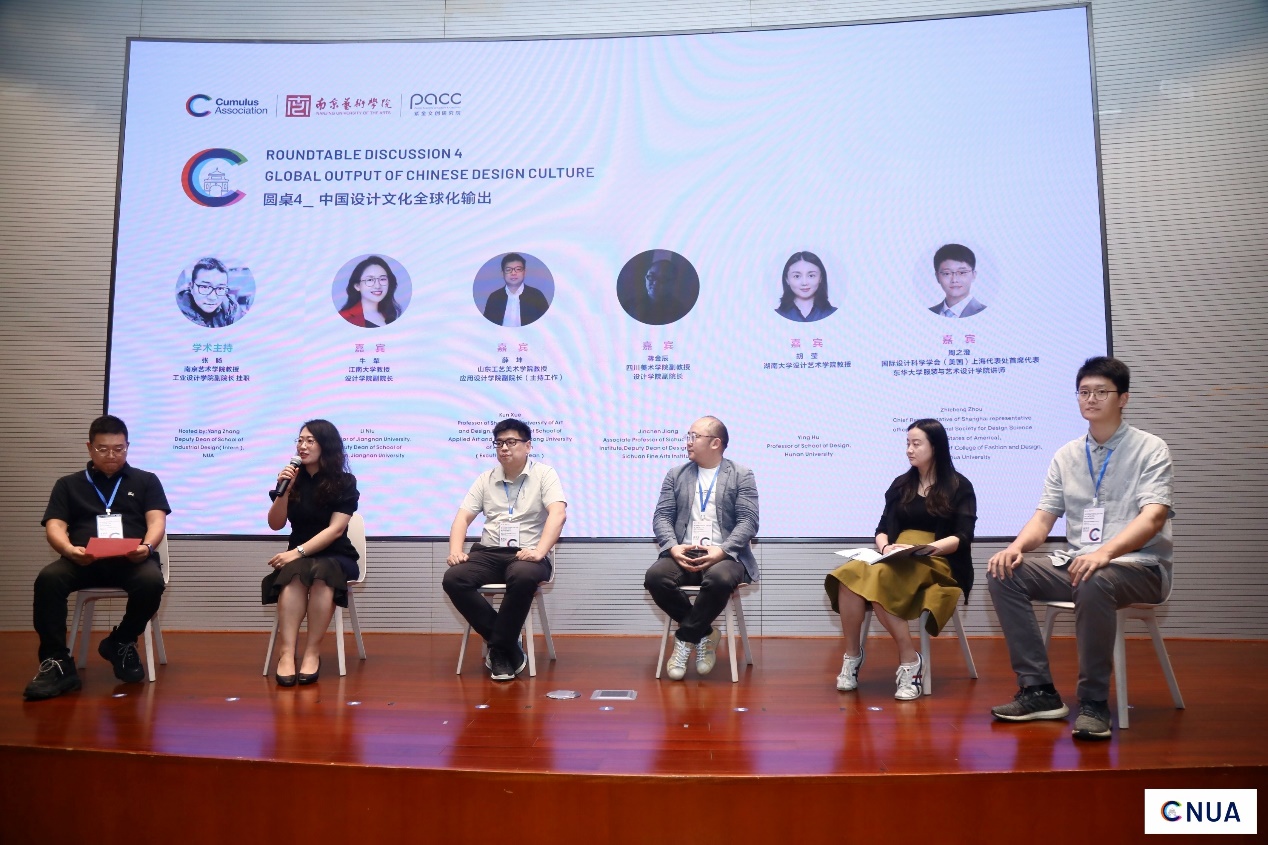
Li Niu, Professor of Jiangnan University, Deputy Dean of School of Design, Jiangnan University
Kun Xue, Professor of Shandong University of Art and Design, Deputy Dean of School of Applied Art and Design, Shandong University of Art and Design(Excutive Deputy Dean )
Jinchen Jiang, Associate Professor of Sichuan Fine Arts Institute, Deputy Dean of Design Academy, Sichuan Fine Arts Institute
Ying Hu, Professor of School of Design, Hunan University
Zhicheng Zhou, Chief Representative of Shanghai representative office of International Society for Design Science (United States of America),Lecturer of Design College in Donghua University
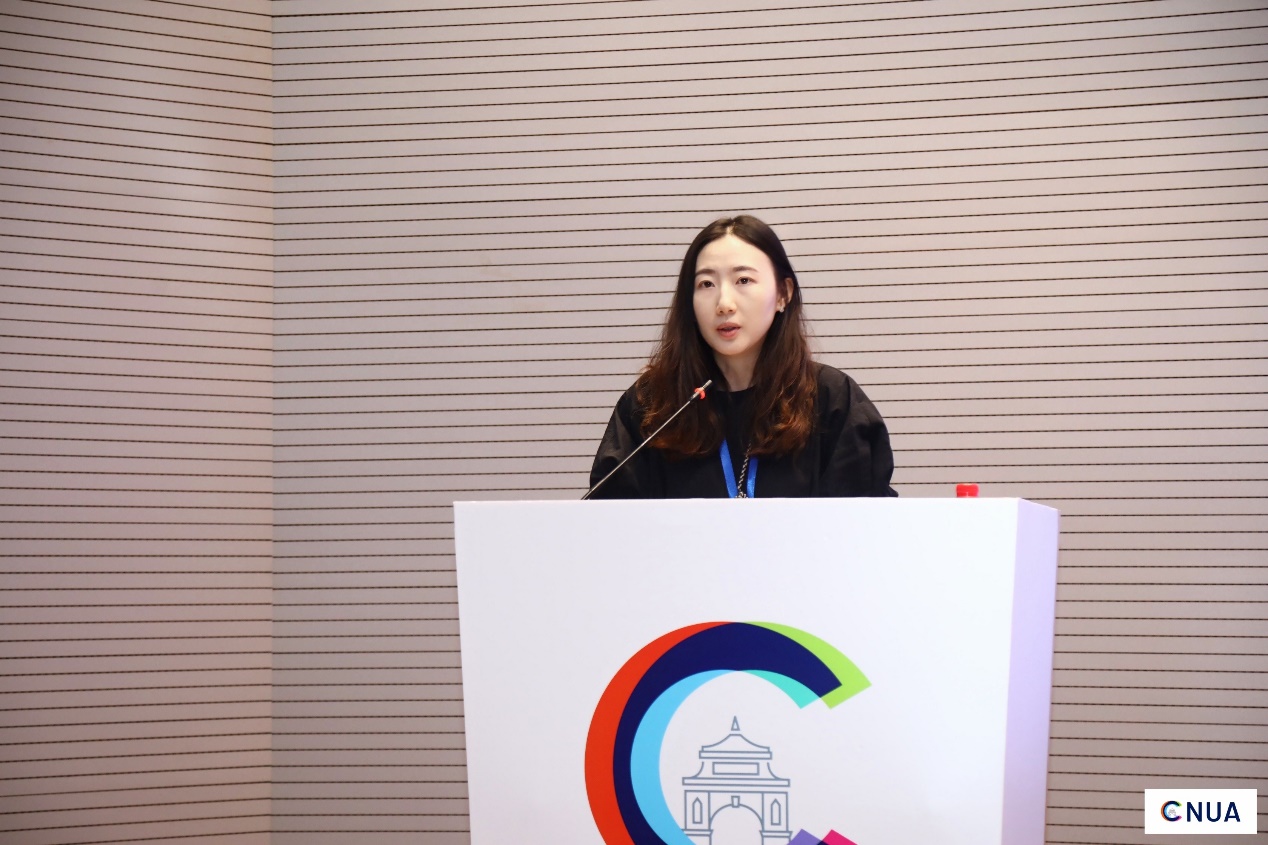
Beike Li, lecture of Central Academy of Fine Arts, introduced the theme of the Cumulus Beijing CAFA 2023, Narratives of Love: Towards Healing, Transformation and Transcendence. Combined with the current crisis faced by human society, Cumulus Beijing CAFA 2023 will take love as theme, and use art and design as a means to explain the concept, thinking, culture, ecology, social education, science and technology of love at different levels and dimensions. When discussing the proposition of "love" facing the future development of human beings, three sub-themes are derived: Narratives of Love, Foresight Plan, and Design Flow.
Cumulus Beijing CAFA 2023 will set up six parallel conferences: Technology in Design hosted by the Guangzhou Academy of Fine Arts, Society in Design hosted by Jingdezhen Ceramic University, Cultures in Design hosted by Xi’an Academy of Fine Arts, History in Design hosted by Nanjing University of Arts, Ecology in Design hosted by Sichuan Fine Arts Institute, Economic in Design hosted by Xiamen University.
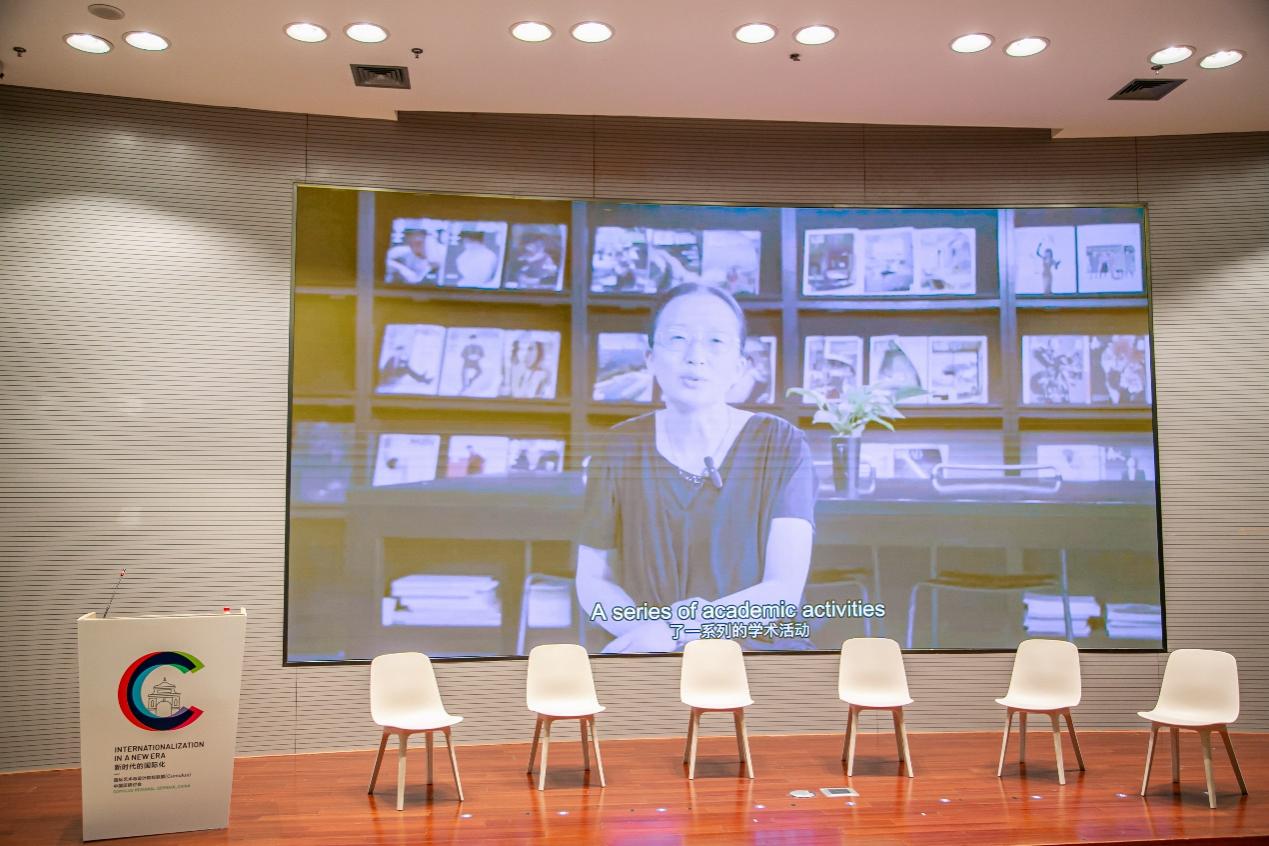
Professor Yingchun Zang, Dean of Department of Textile and Fashion Design, Academy of Arts & Design, Tsinghua University, briefly explain the establishment process and basic situation of Tsinghua Art and Design Institution in Milan. The academy plays the role of education, academic research, and exhibition. From these three perspectives, Finally, Professor Yingchun Zang introduced the achievements of the Tsinghua Art and Design Institution in Milan in international education, teaching cooperation, academic exchanges, and cultural communication.

Jianming Xie, Vice President of Nanjing University of the Arts, delivered the closing speech.
The world is supported by science and art, complementing each other, and design is closely related to the both. Among them, science solves the problem of technical support of the real world, while philosophy, art, and ethics solve the problem of the value orientation of human society.
2003 Cumulus Reginal SeminarChina provided a platform for the exchange of ideas, information and feelings for all guests, which is also the greatest significance of the conference.


















